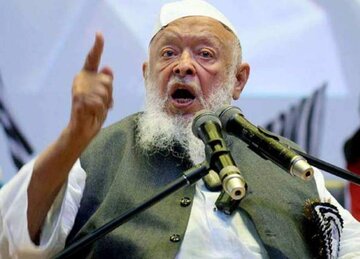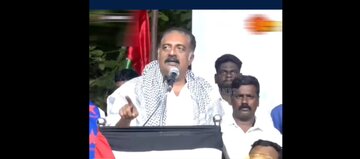AhlulBayt News Agency: Shah referred to Colonel Sofia Qureshi, a decorated Indian Army officer, as a "sister from the terrorists' community," suggesting that Prime Minister Narendra Modi sent her to "teach them a lesson" during Operation Sindoor. This remark, perceived as communal and derogatory, has drawn widespread condemnation from opposition parties and civil society groups.
Colonel Qureshi, who has been at the forefront of media briefings on Operation Sindoor—a military initiative targeting terrorist networks in Pakistan and Pakistan-occupied Kashmir—has been lauded for her service and professionalism. Her achievements include being the first Indian woman officer to lead a multinational military exercise in 2016.
However, Shah’s comment—implying that Prime Minister Modi had sent her into the operation to "teach her community a lesson"—has been widely condemned as bigoted and divisive.
Opposition leaders, veterans, and civil rights activists decried the remark as an example of the normalization of anti-Muslim rhetoric in Indian politics.
In response to the backlash, Shah issued a public apology, stating that his comments were misinterpreted and expressing deep regret. He claimed to hold more respect for Colonel Qureshi than his own sister and emphasized his willingness to apologize multiple times.
The remark from BJP leader isn’t just a slip of the tongue. When a Muslim woman serving her country with distinction is still reduced to her faith in such a derogatory way, it shows how deep-rooted the bias has become.
However, critics argue that such statements reflect a broader pattern of Islamophobic rhetoric within certain political circles in India. Reports have highlighted instances where political leaders have made remarks that incite discrimination and hostility against Muslims.
This incident is part of a wider pattern. From political speeches to social media campaigns, Islamophobic language has been increasingly visible, often used to question the loyalty or identity of Indian Muslims. Analysts warn that such narratives not only endanger communal harmony but also undermine the secular fabric of the Indian armed forces.
The incident has intensified calls for political accountability and a reevaluation of the discourse surrounding national security and communal harmony. As India continues to grapple with these challenges, the need for inclusive and respectful dialogue remains paramount.
Colonel Sofia Qureshi has not publicly responded to the controversy, but her service record continues to speak louder than any political remark. For many, she stands as a symbol of unity, while the minister’s words serve as a stark reminder of the growing challenges facing India’s Muslim community.






Your Comment